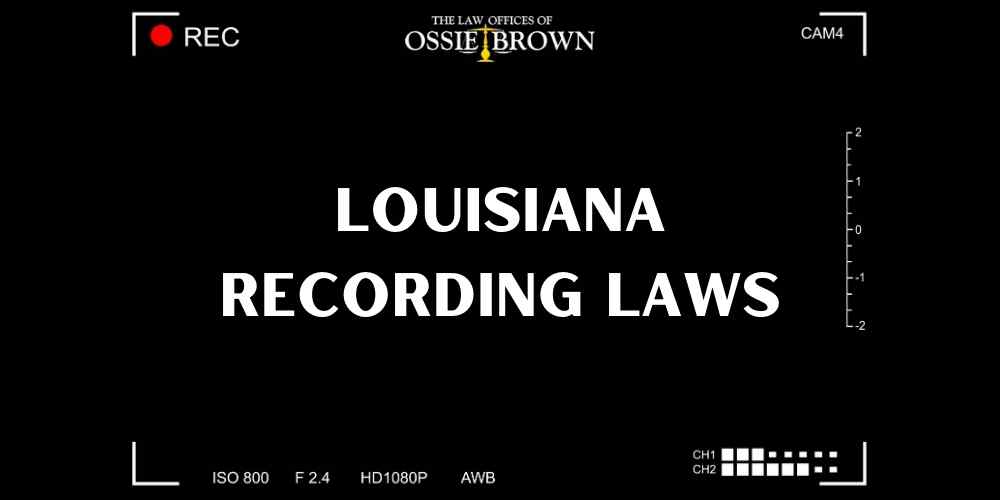If you’re an avid watcher of true crime shows, you know that secretly recording audio or video of someone committing a crime is a common way for bystanders, or police, to get the evidence they need to put someone behind bars. But recording phone calls, in person conversations, or behaviors without the other person’s consent can be illegal, especially if you’re in a two party consent state. In terms of Louisiana recording laws, the state specifically follows the one party consent law, meaning that only one person has to consent to the recording or use of in-person, telephone, or electronic communication.
Below, our Baton Rouge criminal defense lawyers explain how Louisiana state laws apply to both audio and video recordings, as well as how it applies to surveillance cameras and even dash cams.
If you’re facing charges for a crime that was documented via an audio or video recording device, don’t lose hope. You have the legal right to hire strong legal representation, so make sure that your first call after arrest is the Law Offices of Ossie Brown.
We can help you obtain the best possible case outcome, no matter the evidence levied against you. Call 225-343-1111 to schedule a free consultation with a Baton Rouge criminal defense attorney today.
Federal Law For Call Recording, Video Recording, and Conversation Recording
The United States has federal law governing the recording of phone calls and other electronic communications. According to the Electronic Communications Privacy Act (ECPA) of 1986, at least one party involved in the conversation must consent to the recording.
This federal statute establishes a baseline for the recording and use of phone calls and electronic conversations; however, states can enact stricter state statutes.
Is Louisiana a One Party Consent State?
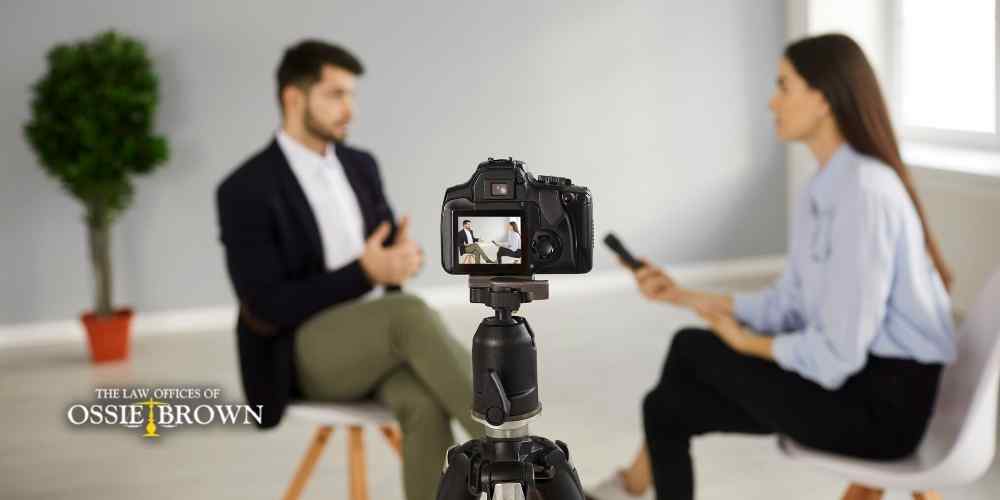
Yes, Louisiana is a one-party consent state when it comes to recording conversations or telephone calls.
According to Louisiana’s electronic surveillance act (RS 15:1303), it’s legal for an individual to record any oral or electronic communication, including videoing and call recording, if they are a participant in the conversation or if at least one of the involved parties has given their consent to be recorded.
This means according to Louisiana video and call recording laws, you do not need to obtain permission from all parties involved in the conversation, which contrasts with the requirements in any “two-party consent” state.
However, Louisiana’s one-party consent state law prohibits recording conversations that you are not a part of without the consent of at least one party participating in the conversation. It’s important to note that video and call recording laws recogize the intent behind the recording, even in a one-party consent state, like Louisiana.
For example, it’s illegal for the recording party to record an in-person conversation or phone conversation with criminal or tortious intent, even in one-party consent states. Always considering the context and intention behind recording a conversation is crucial when it comes to complying with state laws.
Other States That Require Consent From At Least One Party
Louisiana is certainly not the only one party consent state. There are several other states that are considered a one party consent state:
- Alabama
- Alaska
- Arizona
- Arkansas
- Colorado
- Connecticut (one party consent state only for in-person conversations or telephone conversations recorded by one party that’s participating)
- Delaware
- District of Columbia
- Georgia
- Hawaii
- Idaho
- Illinois (one party consent state only for electronic conversation or for recording police officers in public)
- Indiana
- Iowa
- Kansas
- Kentucky
- Maine
- Michigan
- Minnesota
- Mississippi
- Missouri
- Nebraska
- Nevada
- New Jersey
- New Mexico
- New York
- North Carolina
- North Dakota
- Ohio
- Oklahoma
- Oregon (one party consent state only for recording electronic communications)
- Rhode Island
- South Carolina
- South Dakota
- Tennessee
- Texas
- Utah
- Vermont
- Virginia
- West Virginia
- Wisconsin
- Wyoming
Many of these one party consent states have their own specific stipulations.
For example, Wisconsin is technically a one party consent state, but it requires two party consent for an in-person or telephone conversation to be used in court. This means phone calls recorded without the consent of the other person involved cannot be used as evidence in court.
Be sure to carefully review the phone call recording laws of each individual state and obtain proper consent from the necessary parties.
What States Are Two Party Consent States?
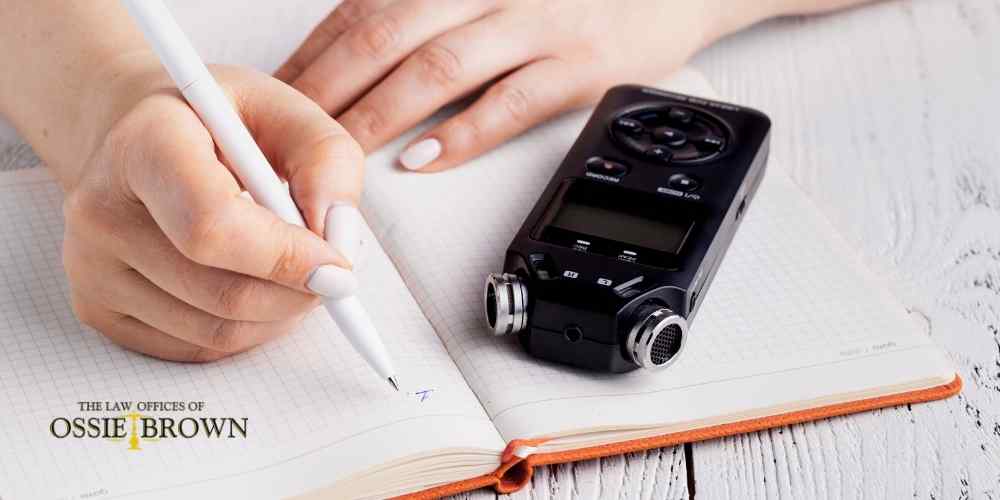
In contrast, some states are designated as “two-party consent” states, where people must gain consent of all parties involved in telephone conversation or oral communication recordings. Without the consent of all the parties, the recording party can face serious penalties.
The following states follow the two party consent rule:
- California
- Connecticut (only for electronic recordings)
- Florida
- Hawaii
- Illinois (only for recording non-electronic private conversations)
- Maryland
- Massachusetts
- Montana
- New Hampshire
- Oregon (only for recording in-person conversations)
- Pennsylvania
- Washington
Again, some of these states have very specific stipulations.
As you can see, a state can be a one party consent state for certain types of recordings, and a two party state for other types of recordings. Be sure to check your specific state’s laws before recording calls or using recording devices without the consent of all parties involved, as you could be engaging in illegal recording.
Can You Secretly Record Someone in Louisiana?
In Louisiana, the legality of secretly recording someone without their knowledge depends on the context and your involvement in the conversation.
As a one-party consent state, Louisiana law dealing with recording permits the recording of a conversation without the consent of all parties, as long as at least one person involved in the conversation — which could be the person recording — consents to the recording.
This means you can legally record conversations to which you are a party without needing to inform the other parties involved, as you provided the party’s consent.
However, recording conversations without the consent of the other parties, that you are not a part of, or without the consent of at least one participating individual, is illegal. Additionally, recording secretly with criminal or tortious intent, such as for the purpose of blackmail or harassment, is illegal.
In cases where the legality of recorded conversations is uncertain, or if the recording could be used for significant purposes, such as in legal proceedings, seeking the advice of a Baton Rouge criminal defense attorney at the Law Offices of Ossie Brown is highly recommended from a legal standpoint.
Is It Illegal To Record a Conversation in Louisiana?
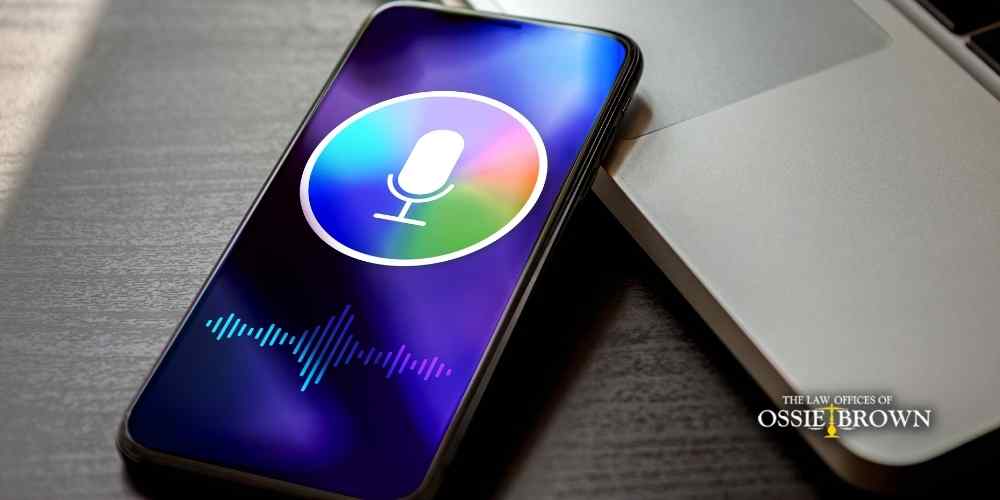
In Louisiana, as a one party consent state, it is generally not illegal to record a conversation if you are a party to the conversation or with one party consent of one of the participants.
If you are a third party recording an in-person or phone conversation, meaning you are not actually involved in the conversation, you can obtain consent of at least one party through the following ways:
- Ask for verbal or written consent of at least one party
- Create a verbal notification before recording telephone conversations. For example: “This phone call is being recorded for quality assurance.”
- Ensure that the person/people involved in the phone call can hear a beep tone at steady intervals throughout their conversation, which indicates they are being recorded.
Examples of Legal Voice Recordings in Louisiana
Legal voice recordings in Louisiana include recording conversations during business meetings (if at least one party consents), documenting verbal agreements, or recording threats or harassment for evidence in legal proceedings.
Examples of Illegal Voice Recordings in Louisiana
Conversely, here’s an example of an illegal recording. It would be illegal to leave a recording device in a room and record the conversation of the people in the room, because you don’t have the consent of at least one party.
It is also illegal to record a conversation with the intention of blackmailing them or invading their privacy, as this is considered criminal or tortious intent.
Video Recording Laws in Louisiana
In Louisiana, the laws regarding video recording are primarily focused on the expectation of privacy. It is generally legal to record videos in public places where there is no reasonable expectation of privacy. This means that activities happening in open view, like streets or public parks, can be recorded without needing the consent of the individuals captured in the footage.
However, Louisiana law strictly prohibits video recording in locations where individuals have a reasonable expectation of privacy, such as in private homes, restrooms, locker rooms, or changing areas, without explicit prior consent from the individuals being recorded.
It’s important to note, again, that the legality can also depend on the context and purpose of the recording. For example, using a video recording for purposes like harassment, blackmail, or a lewd or lascivious purpose is illegal.
Given the nuances in these laws, it’s crucial for individuals and professionals working with video recordings to understand the specific boundaries and legal frameworks in Louisiana, or to seek legal counsel when in doubt.
Surveillance Camera Laws in Louisiana
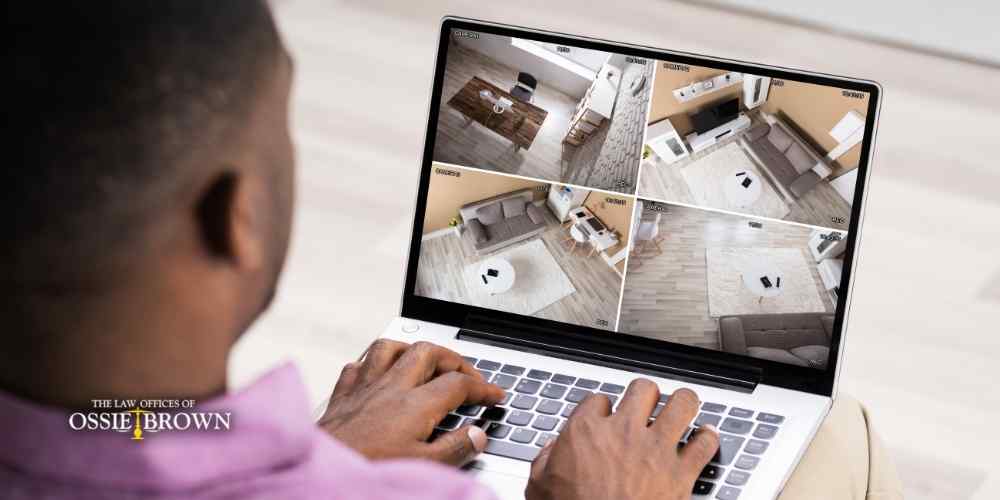
Louisiana’s laws concerning surveillance cameras are designed to balance security needs with privacy rights. While it’s generally permissible for homeowners and businesses to install surveillance cameras around their property for security purposes, these cameras must not infringe upon the privacy of others.
The key legal consideration is the location and intent of the surveillance. Again, cameras must not be placed in areas where individuals have a reasonable expectation of privacy, such as restrooms, dressing rooms, or other private spaces, because recording in these locations can violate video voyeurism laws.
Landlords and Surveillance Cameras
In the context of rental properties, landlords should inform tenants about the presence of surveillance cameras and avoid placing them in private spaces like inside the rental units unless tenants give explicit consent. Moreover, using surveillance footage for illegal activities, such as harassment or voyeurism, is considered an illegal recording and is strictly prohibited under Louisiana law.
Given the evolving nature of technology and privacy laws, individuals and businesses using surveillance cameras should stay informed about the latest legal requirements and consider consulting our Baton Rouge criminal defense lawyers for guidance specific to their situation.
Louisiana Dash Cam Laws
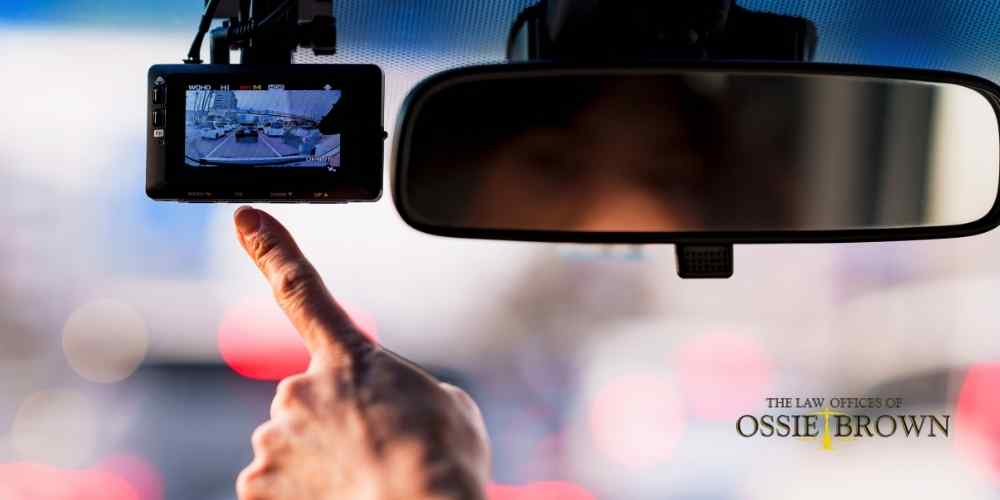
In Louisiana, the use of dash cams in vehicles is legally permitted and is increasingly common as drivers seek to protect themselves in case of major car accidents or disputes on the road.
Louisiana law doesn’t specifically restrict the use of these devices in vehicles; however, drivers must ensure that their use complies with general legal standards for recording. Since Louisiana is a one-party consent state, audio recordings captured by dash cams are typically lawful as long as there is consent of at least one party (i.e. the driver, but only if they are a party in the conversation).
It’s crucial, however, that the dash cam’s placement or usage doesn’t obstruct the driver’s view or violate distraction laws, ensuring the safe operation of the vehicle is maintained.
Additionally, drivers should be mindful that recordings can be a double-edged sword — while they can provide crucial evidence in legal disputes, accidents, or interactions with law enforcement, they might also potentially capture evidence of the driver’s own faults or violations.
Thus, while dash cams are a valuable tool for personal security and legal evidence, they must be used responsibly within the legal framework provided by Louisiana law.
Can You Use Dash Cam Footage in a Personal Injury Lawsuit?
Dash cam footage can be an invaluable asset in a personal injury lawsuit, such as a car accident lawsuit, in Louisiana. This footage can provide clear evidence about the circumstances of an accident, potentially aiding in the establishment of fault and liability.
A Baton Rouge car accident lawyer can provide more information about your legal options.
How Dash Cam Footage Can Be Used Against You in a Civil Lawsuit
It’s important to remember that dash cam footage can also be used against you in a civil suit. If the footage shows you at fault or engaging in illegal behavior (like distracted or drunk driving), it could potentially harm your case or lead to legal repercussions.
Is It Illegal to Record Law Enforcement Officers in Louisiana?
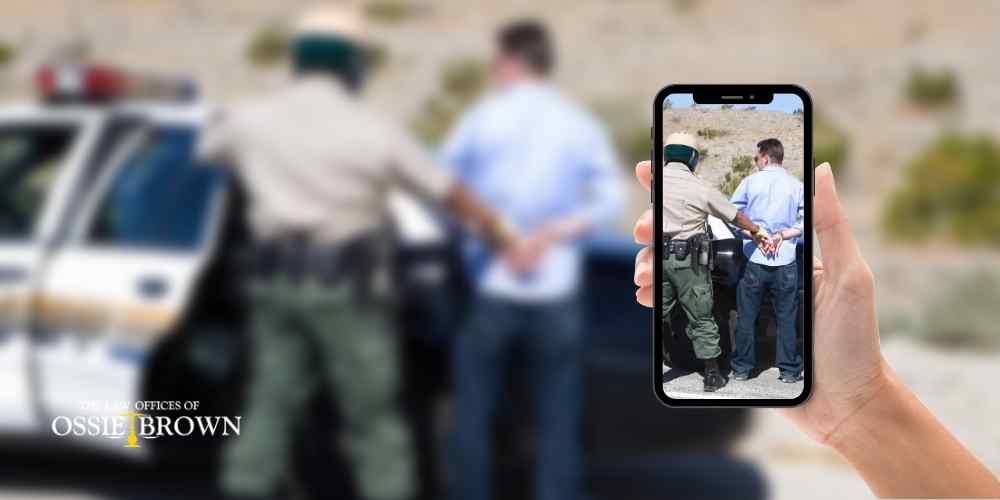
In Louisiana, as a one party consent state, it is generally legal to record police officers performing their duties in public spaces, as long as the recording does not interfere with those duties.
However, it’s important to note that the recording should be done openly and, again, should not obstruct the officer’s work. Secretly recording police officers, trespassing on private or restricted property to make a recording, or hindering law enforcement operations in any way while recording could lead to a host of other criminal charges, such as resisting an officer in Louisiana, for example.
Also, different jurisdictions or specific circumstances might influence the legality of such recordings. In any interactions involving recording law enforcement, it’s important to balance the right to record with respect for police operations and public safety.
If you find yourself in a situation involving legal complexities around recording police officers, consulting with knowledgeable attorneys, such as the legal team at the Law Offices of Ossie Brown, is advisable.
Penalties for Violating Louisiana Recording Laws
Violating Louisiana’s recording laws can lead to significant legal repercussions, varying based on the nature and severity of the offense.
Unlawfully intercepting, disclosing, or attempting to record oral, wire, or electronic communications can result in both criminal and civil penalties. Under Louisiana law (RS 15:1303), illegal recording is generally considered a felony, punishable by a maximum fine of $10,000 and a maximum sentence of 10 years at hard labor.
Those who violate Louisiana’s video voyeurism laws (RS 14:283) can face a variety of criminal penalties, depending on the specific details of the case such as age of the recorded victim and what content matter was recorded. Penalties can include a maximum fine of $10,000 and a maximum sentence of 10 years at hard labor.
Additionally, victims of illegal recordings may seek civil damages, including compensatory damages, punitive damages, and attorney fees against the defendant.
Given these severe consequences, it’s crucial to understand and comply with the state’s recording laws or consult with legal experts like the Law Offices of Ossie Brown for guidance and representation if you’re involved in either criminal or civil matters concerning recording laws.
Call Baton Rouge Criminal Defense Lawyers at the Law Offices of Ossie Brown Today
Understanding and navigating the complexities of Louisiana’s recording laws can be challenging. For those facing issues related to these laws, whether in criminal defense or in personal injury scenarios, seeking professional legal advice and representation is crucial.
Our experienced team of Baton Rouge attorneys have the expertise and experience to guide clients through both civil and criminal cases involving recorded evidence.
Whether you’re facing charges for a violent crime caught on camera or you’re enduring a car accident case involving incriminating dash cam footage, our legal team can help you obtain the best possible case outcome. Call 225-343-1111 to schedule a free consultation at the Law Offices of Ossie Brown today.

